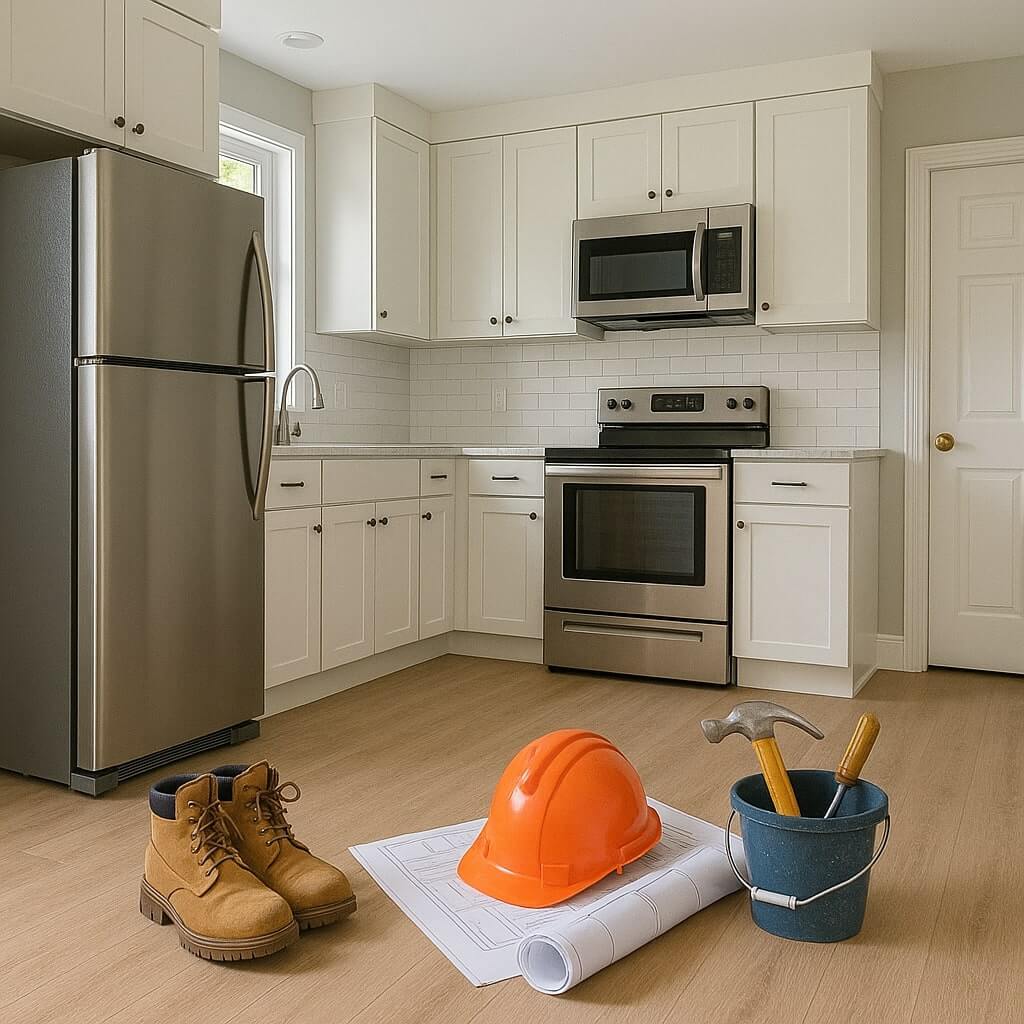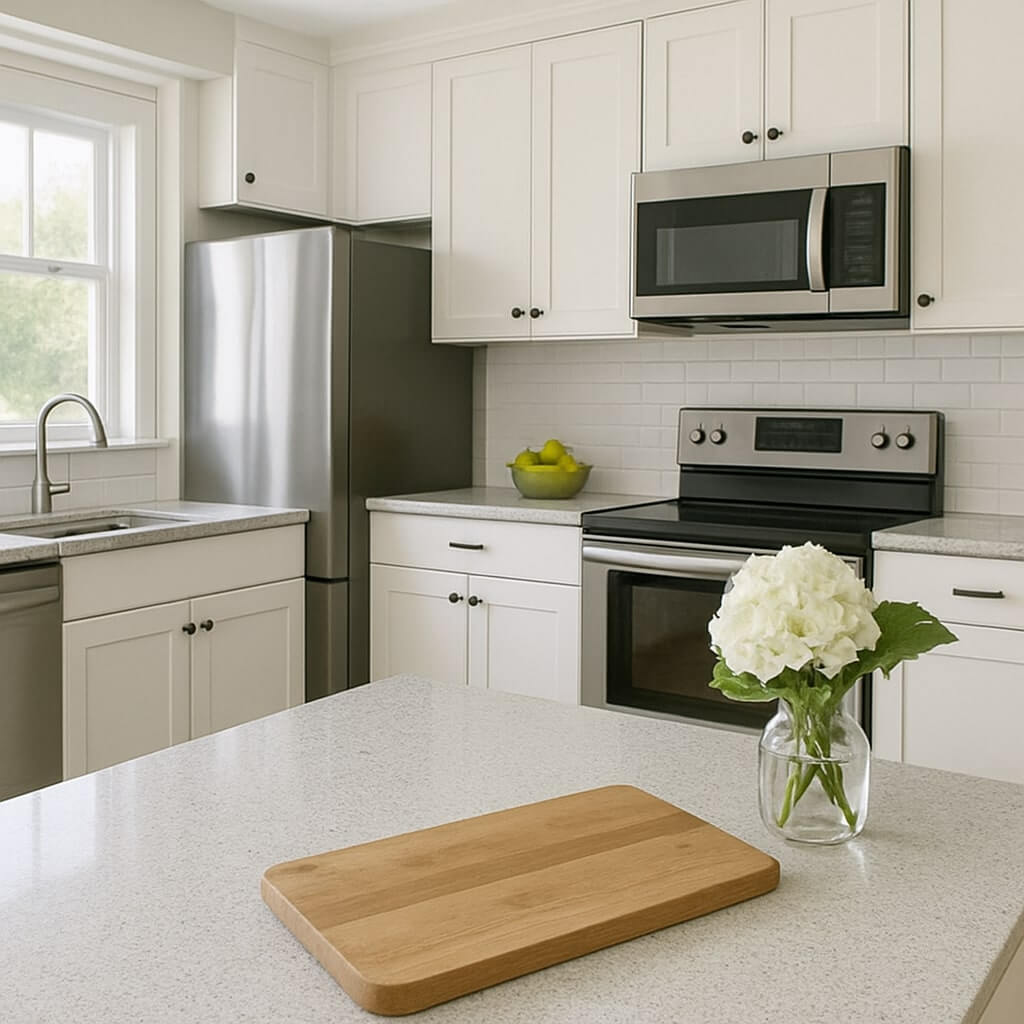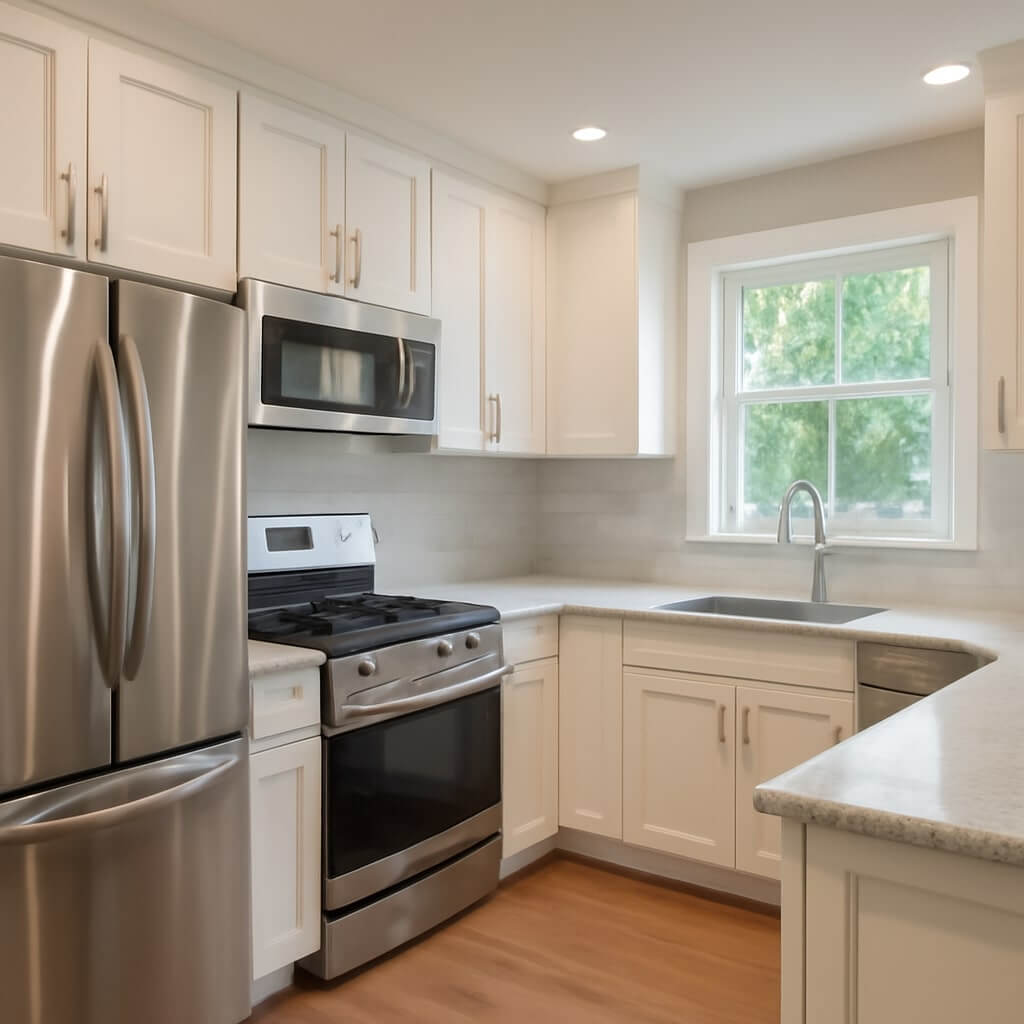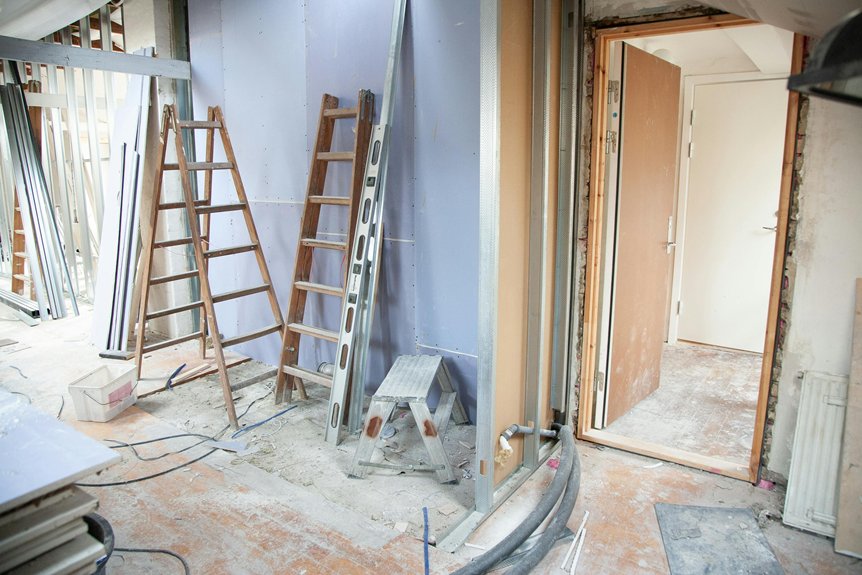When you’re planning a kitchen remodel, one of the first things you need to contemplate is whether you need a permit. It might seem straightforward, but the answer can vary based on the scope of your project and local regulations. Knowing what’s required can save you from headaches down the road. Let’s explore the types of renovations that typically require permits—and those that don’t—so you can avoid potential pitfalls.
Key Takeaways
- Kitchen renovations requiring structural changes, electrical, or plumbing upgrades typically need permits to ensure safety and compliance.
- Cosmetic updates, such as painting or replacing appliances, usually do not require permits.
- Adding or modifying windows, doors, or load-bearing walls generally necessitates a permit.
- Check local building codes for specific permit requirements, as they can vary by jurisdiction.
- Remodeling without a permit can lead to fines, forced removal of work, and complications when selling your home.
Understanding Local Building Codes
Before you immerse yourself in your kitchen remodeling project, it’s essential to understand local building codes, as they can dictate what’s permissible in your renovation.
Familiarizing yourself with local regulations helps you avoid costly mistakes and potential fines. Some updates might qualify for permit exemptions, but it varies by jurisdiction.
Research what changes are allowed without permits, like cosmetic upgrades or minor electrical adjustments. Always check with your local building department to clarify requirements and guarantee compliance.
This knowledge won’t only streamline your project but also provide peace of mind as you create your dream kitchen.
Types of Kitchen Renovations That Require Permits
When planning your kitchen renovation, it’s essential to know which types of changes require permits.
Any structural modifications that affect safety, along with electrical and plumbing upgrades, typically fall into this category.
Understanding these requirements can save you time and prevent costly setbacks in your project.
Structural Changes Impacting Safety
Understanding which kitchen renovations require permits is essential, especially when structural changes are involved.
Changes that affect load bearing walls can compromise your home’s structural integrity, so it’s vital to know when to seek a permit.
Here are some renovations that typically require one:
- Removing or altering load bearing walls
- Adding new windows or doors
- Expanding the kitchen footprint
- Modifying ceiling heights
- Installing structural beams or supports
Always check with local regulations before starting, as building codes can vary.
Ensuring safety and compliance protects both your investment and your family. Don’t skip this important step!
Electrical and Plumbing Upgrades
While you may be excited to upgrade your kitchen’s electrical and plumbing systems, it’s essential to recognize that many of these changes require permits to guarantee safety and compliance with local building codes. Installing new kitchen lighting or replacing plumbing fixtures often falls into this category. Here’s a quick reference table to help you understand what typically needs a permit:
| Upgrade Type | Permit Required | Reason |
|---|---|---|
| Kitchen Lighting | Yes | Safety and Code Compliance |
| Plumbing Fixtures | Yes | Prevent Water Damage |
| Wiring for Appliances | Yes | Electrical Safety |
Always check your local regulations before starting!
Common Kitchen Updates That Typically Don’t Need Permits
Many homeowners are enthusiastic to refresh their kitchens without the hassle of obtaining permits.
Luckily, several common updates typically don’t require them. Here are some changes you can make:
- Appliance upgrades (like replacing a fridge or dishwasher)
- Cosmetic changes (such as painting cabinets or walls)
- Installing new countertops (without altering the cabinetry)
- Replacing flooring (as long as it’s not structural)
- Adding or changing light fixtures (if it’s a simple swap)
These updates can enhance your kitchen’s functionality and style while keeping your project permit-free and stress-free!
Always check local regulations to be sure.
The Permit Application Process
Before diving into your kitchen remodeling project, it’s essential to navigate the permit application process to make certain everything goes smoothly.
Start by checking your local regulations and understanding the application requirements, which often include detailed plans and contractor information. Prepare your documents carefully to avoid delays.
Once submitted, expect a permit timeline that varies by jurisdiction; it could take weeks or even months. Stay proactive by following up with your local office to make sure your application is on track.
Consequences of Remodeling Without a Permit
Remodeling your kitchen without a permit can lead to serious legal penalties that you mightn’t be prepared for.
Beyond fines, you could also face safety risks that jeopardize your home and family.
Plus, skipping the permit process can create complications with your insurance, leaving you vulnerable when you need coverage the most.
Legal Penalties Incurred
When you skip obtaining the necessary permits for your kitchen remodel, you might face serious legal penalties that could complicate your project and finances.
The legal ramifications can include:
- Fines and financial penalties imposed by local authorities
- Forced removal of unpermitted work, leading to additional costs
- Difficulty selling your home in the future
- Increased scrutiny from inspectors during future renovations
- Potential liability if issues arise from unpermitted work
Navigating these consequences can be intimidating, so it’s best to guarantee compliance with local regulations before diving into your kitchen renovation project.
Don’t let legal troubles derail your dream kitchen!
Safety Risks Involved
Skipping the necessary permits for your kitchen remodel not only leads to legal issues but also introduces significant safety risks.
Without proper permits, you might overlook essential safety inspections that help identify kitchen hazards. For instance, improper electrical work can lead to fires, while inadequate plumbing may cause water damage or mold growth.
These risks not only jeopardize your home but also your family’s safety. By ensuring you have the right permits, you not only comply with regulations but also protect your investment and create a safer environment.
Don’t cut corners—invest in safety and peace of mind during your renovation.
Increased Insurance Issues
Failing to obtain the necessary permits for your kitchen remodel can lead to serious insurance complications down the line.
Without proper permits, you risk compromising your insurance coverage, leaving you vulnerable to liability concerns. Here are some potential issues you might face:
- Denied claims for damages or injuries
- Increased premiums due to unpermitted work
- Legal liability if accidents occur
- Difficulty selling your home in the future
- Non-compliance fines from local authorities
To protect your investment, it’s essential to follow local regulations and obtain the required permits before starting your remodeling project.
Tips for a Smooth Permitting Experience
Maneuvering through the permitting process for your kitchen remodel can feel overwhelming, but with the right preparation, you can make it much smoother.
Start by researching permit timelines specific to your area; knowing how long the process takes helps you plan effectively.
Communicate clearly with your contractor about their responsibilities regarding permits, ensuring they understand what’s needed.
Keep all necessary documents organized and readily available to avoid delays.
Finally, don’t hesitate to reach out to your local building department with any questions.
With these steps, you’ll streamline the permitting process and get your dream kitchen underway sooner.
Conclusion
To wrap up, always check with your local building department before starting your kitchen remodel. Knowing whether you need a permit can save you from potential headaches down the line. While some updates might be simple enough to skip the paperwork, major renovations often aren’t worth the risk of going without a permit. By staying informed and following the proper procedures, you’ll guarantee a smoother remodeling experience and keep your home safe and up to code.




